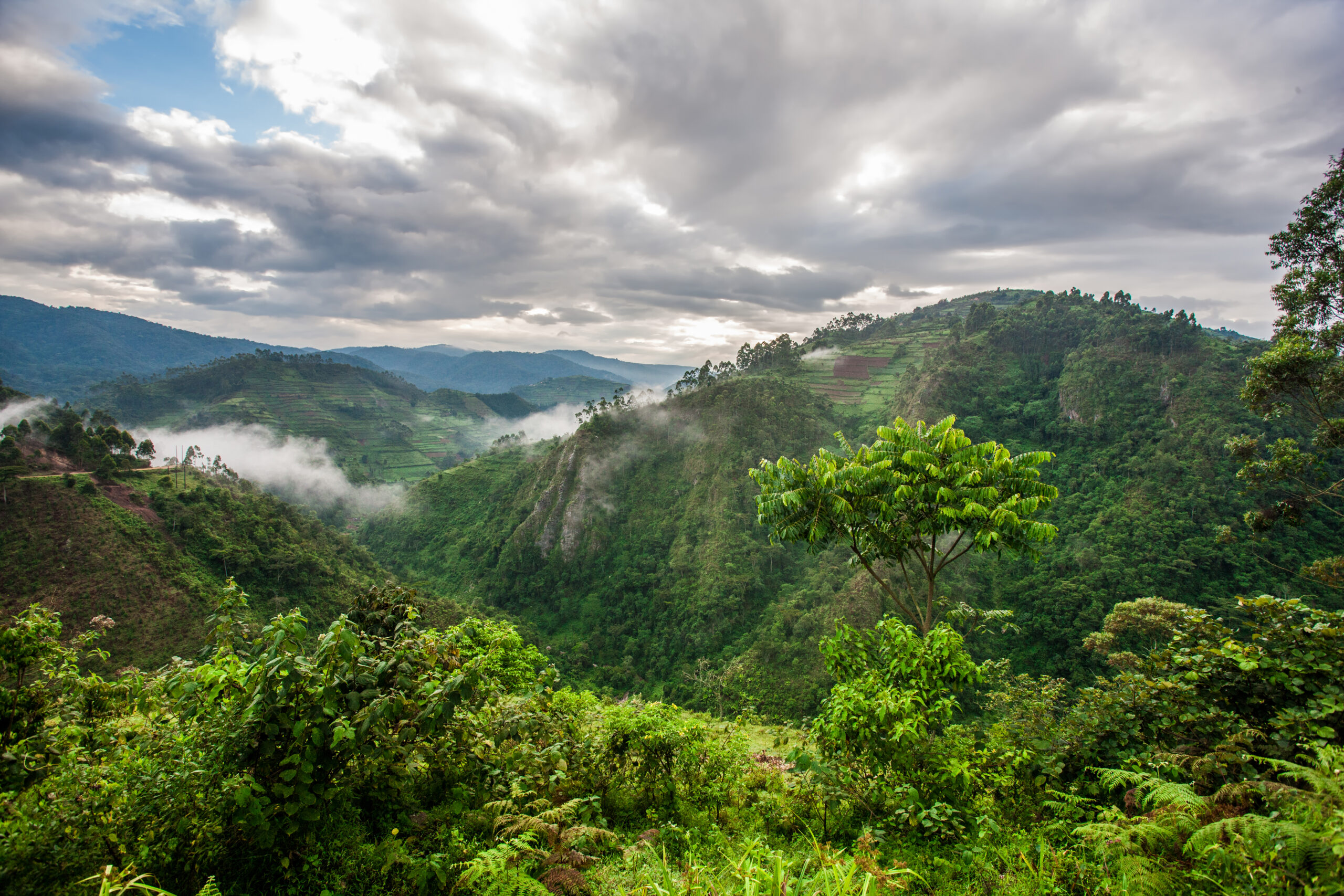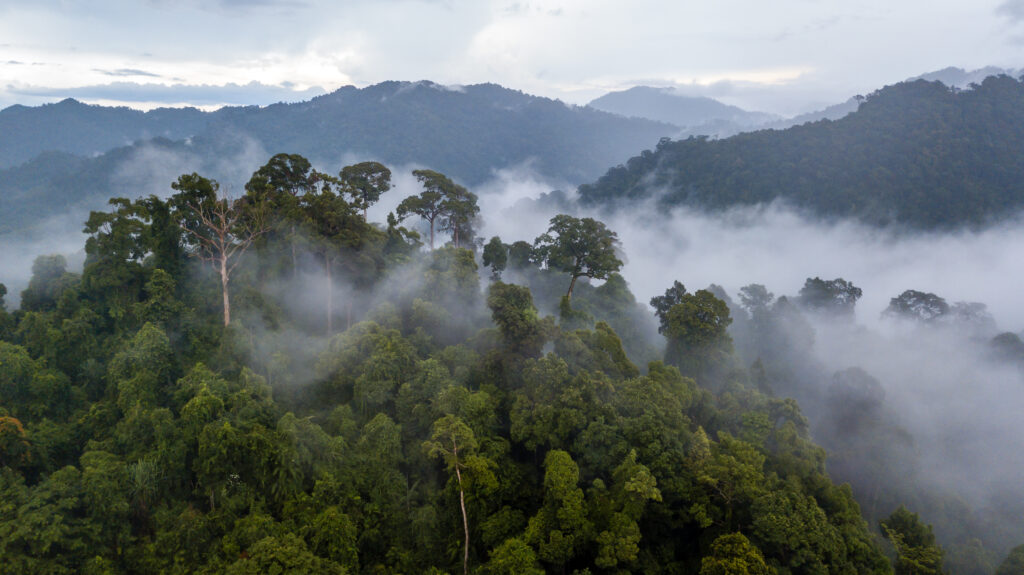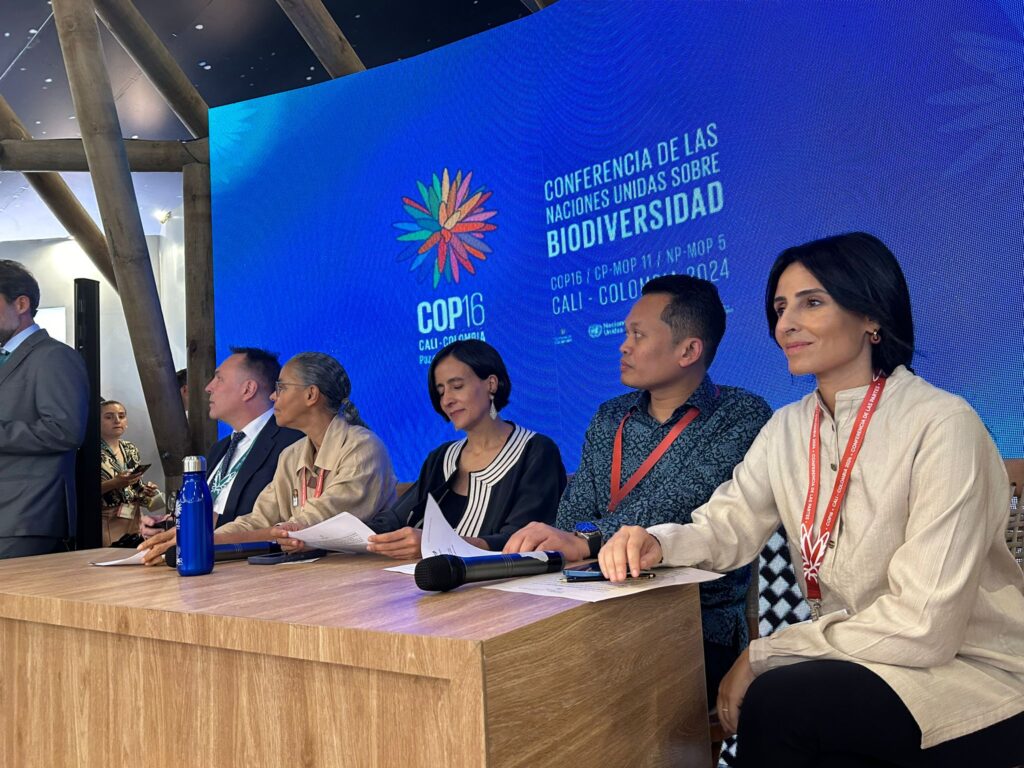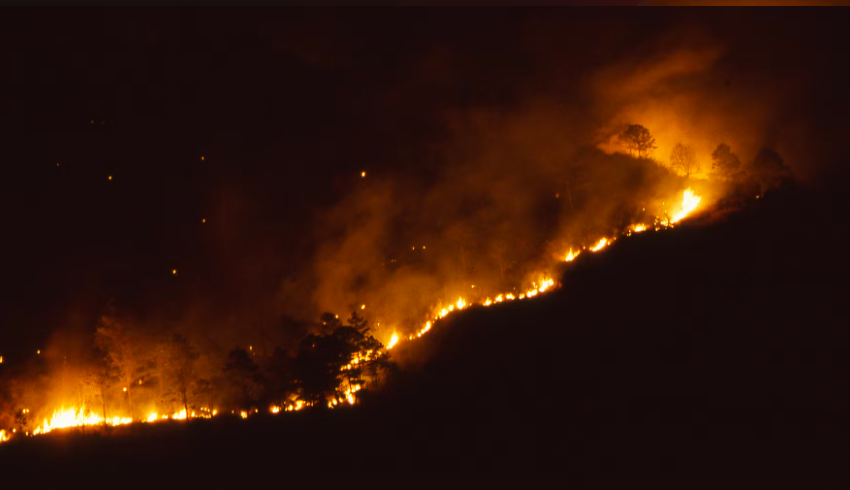
Protecting Uganda’s unique nature and biodiversity
Forests of the World operates primarily in Western Uganda, near the border with the Democratic Republic of Congo, focusing on the forests around Kyenjojo and Fort Portal. This region, located in the Albertine Rift Valley, is a global biodiversity hotspot but faces serious environmental and social challenges. Our efforts centre on creating sustainable, forest-based livelihoods that empower local communities living near these forests.
Agroforestry creates opportunities in Uganda
Uganda’s forests are home to remarkable natural resources that have long supported agriculture and forestry, thanks to stable rainfall patterns. They are also a major driver of tourism, contributing significantly to national income and serving as a source of pride. However, these forests are under immense pressure. Over the last century, Uganda’s forest cover has declined dramatically.
The primary drivers of deforestation include a rapidly growing population – rising to over 45 million today, with projections of 90 million by 2050 – and the increasing demand for agricultural land in this predominantly agrarian economy. Expansive industries like sugarcane farming and weak enforcement of national forest conservation policies exacerbate the problem. Additionally, climate change poses a severe threat, altering rainfall patterns and causing droughts.
Forests of the World is working to combat these challenges by promoting climate-smart agroforestry in western Uganda, near the forest reserves of Itwara and Matiri and the northern edge of Kibale National Park. This region, located in the Albertine Rift Valley, is a biodiversity hotspot but faces significant social challenges, including among other things widespread poverty and refugee influxes from Congo.
Our efforts focus on empowering local communities through sustainable, forest-based livelihoods, including agroforestry systems that improve resilience and profitability while using less land. These practices also enhance canopy cover and protect vital forest ecosystems. We support community-led forest conservation and monitoring initiatives and advocate for policies that recognise the immense ecological and economic value of Uganda’s forests.
By combining local action and political advocacy, we aim to address the urgent challenges of deforestation and climate change, safeguard the extraordinary biodiversity of this region, and secure a sustainable future for the forests and the communities that depend on them.
Forests of the World in Uganda
Since 2018, Forests of the World has been working in Uganda to restore forest cover and support biodiversity. Our efforts focus on reforestation and establishing agroforestry systems to connect fragmented forest areas between Itwara and Matiri Central Forest Reserves and Kibale National Park. These connections aim to enable wildlife, including forest elephants and chimpanzees, to migrate more freely in the future.
This work is carried out in partnership with Joint Effort to Save the Environment (JESE), based in Fort Portal, with Forests of the World providing financial, administrative, and technical support. Our collaboration also aligns with Solidarity Uganda, an aspiring long-term partner focusing on community-led forest conservation initiatives.
Our activities take place both in the field and in government offices. Together with Climate Action Network Uganda, we engage policymakers to highlight the social, environmental, and economic value of forest resources, influencing decisions that impact forests and their biodiversity. On the ground, we work with JESE to restore tree cover by helping local small-scale farmers establish agroforestry systems using native tree species. Farmers receive training and support to develop sustainable and profitable business models.
Agroforestry offers significant benefits for biodiversity and climate resilience while creating sustainable livelihoods. This approach not only supports farmers but also strengthens efforts to protect and restore Uganda’s remaining forests.
Our latest efforts in Uganda

Agroforestry creates livelihoods and forest conservation
Forests of the World collaborates with our partners to assist farmers and cooperatives in cultivating agroforestry in buffer zones around the forests and in corridors that connect the forests and their wildlife. The long-term goal is to link Kibale National Park, Itwara Central Forest Reserve, and Matiri Central Forest Reserve with corridors where tree cover is increased, allowing more animals to move better between the forests. Where farmers previously primarily grew food for themselves, they are now working together in cooperatives and are being trained to negotiate a collective and better price for their crops.
Forests of the World’s curriculum in Uganda
Forests of the World, in collaboration with our Ugandan partner, Joint Effort to Save the Environment (JESE), has developed a curriculum focused on sustainable practices in and around the forests. The courses are part of the ‘Green Entrepreneurship’ initiative, aimed at creating green job opportunities in Uganda to protect nature. Whole or parts of the curriculum have already been integrated into several Ugandan vocational education programs, and the teaching materials will be digitized to make our knowledge even more shareable. The goal is to include the entire curriculum in the national education system in Uganda.



Buy a Rainforest Certificate and support Forests of the World’s work in Uganda
Siri Bang has designed this beautiful image of The Sacred Chimpanzee.
Forests of the World is working to expand and preserve the chimpanzee’s habitats in Uganda.
Forests of the World’s partners in Uganda

Climate Action Network Uganda
Climate Action Network Uganda (CAN-U) is a civil society network that was established in 2009 with a vision to contribute to a world that actively works to protect the climate, focusing on justice, social equality, and sustainable development. CAN-U operates at local, national, and engages globally as a part of CAN International, with core areas including climate research, advocacy, and capacity building.

JESE
Forests of the World, together with JESE, has initiated agroforestry activities in the buffer zones of Itwara and Matiri Central Forest Reserves at the northern tip of Kibale National Park. This collaboration aims to improve the existing cocoa, vanilla and coffee cultivation of small farmers who are organized into three two associations. The improvements manifest in both increased yield and quality, as well as diversification of crops to include trees, thereby enhancing resilience against challenges such as climate change.

Solidarity Uganda
Forests of the World collaborates with Solidarity Uganda, which is an association of activists, community organizers, and political educators, all working to empower marginalized communities in Africa and beyond.


